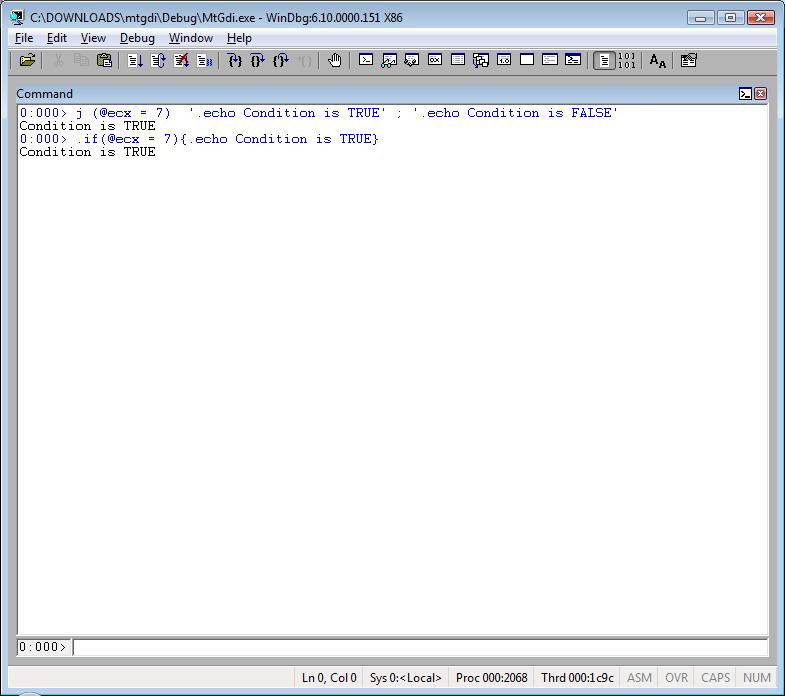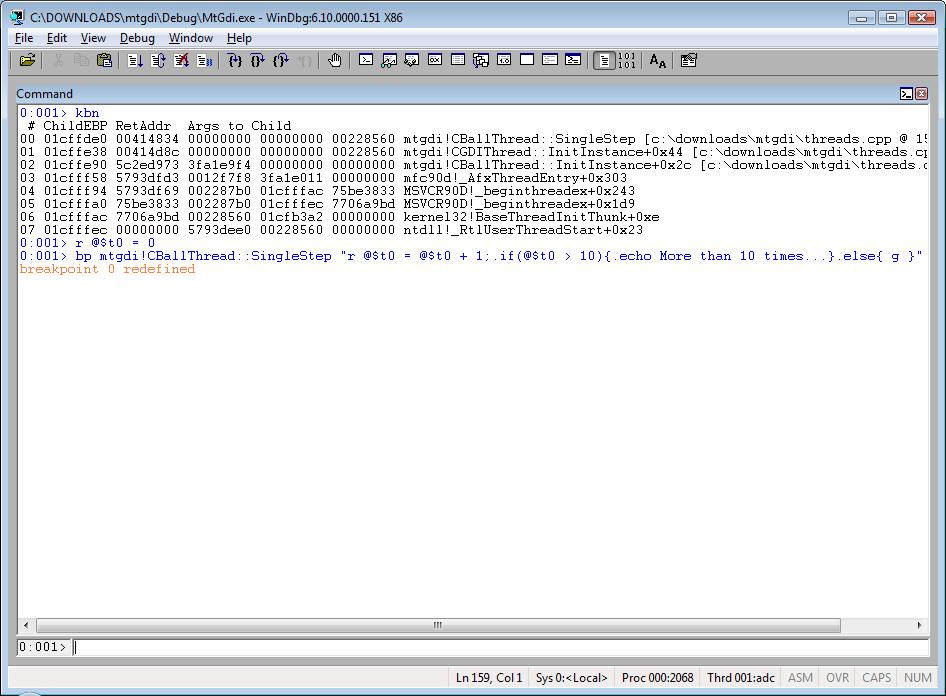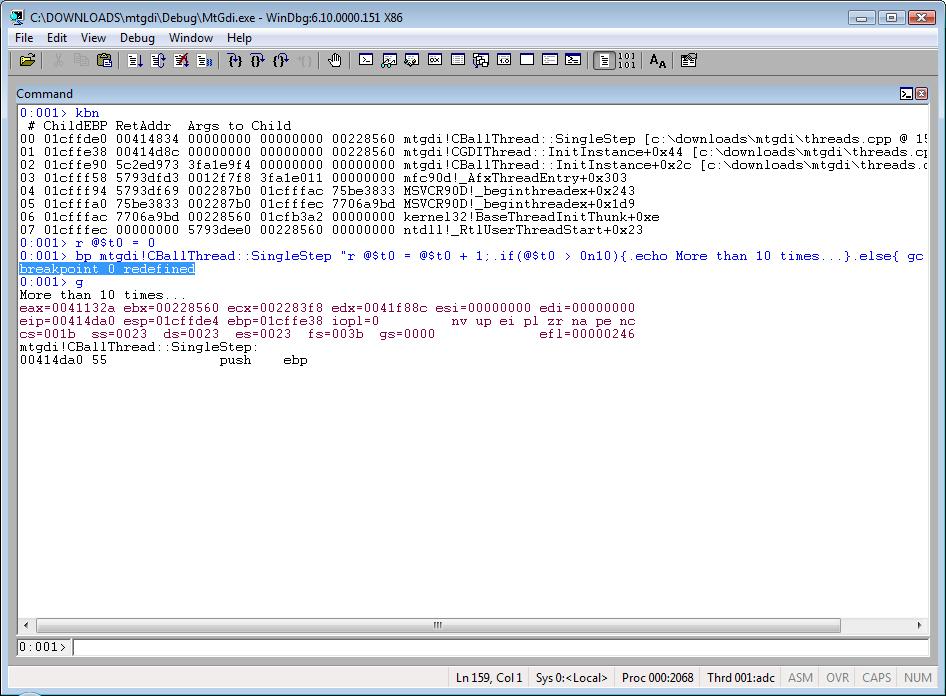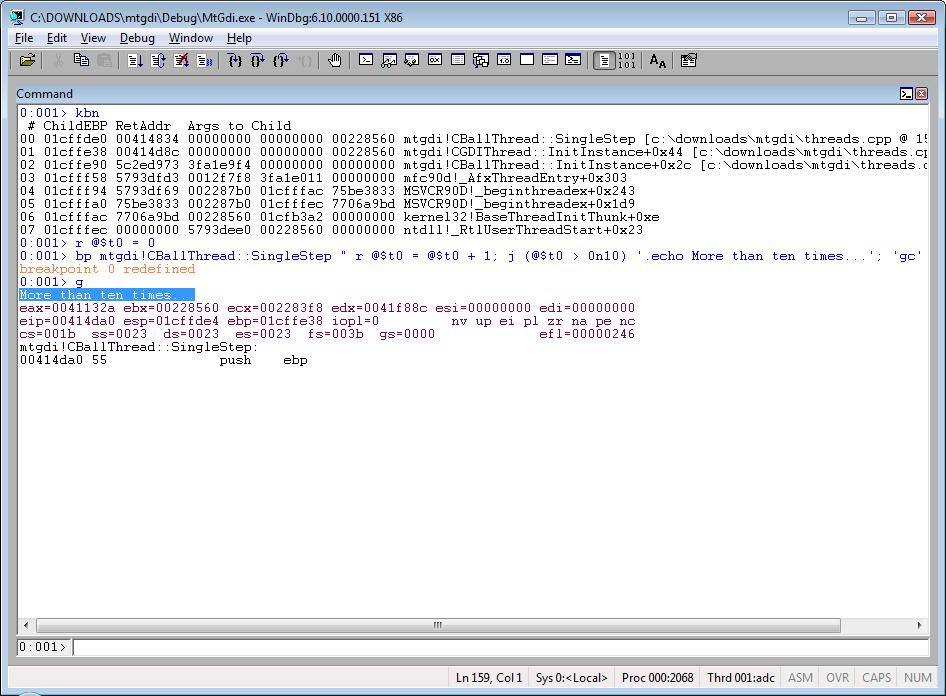Special Command—.if and j to Use in Breakpoints and Scripts
The .if and j commands are used conditionally to execute a command or series of commands.
.if is very similar to if from C and C++:
.if ( Condition ) { Commands } .elsif ( Condition ) { Commands } .else { Commands }
j does the same thing, but uses a very different syntax:
j Expression ' Command1 ' ; ' Command2 '
Generally, I prefer to use .if because I think it’s more intuitive since it looks like C/C++.
Examples:
j (@ecx = 7) '.echo Condition is TRUE' ; '.echo Condition is FALSE'
.if(@ecx = 7){.echo Condition is TRUE}

Let’s suppose we need a breakpoint that performs some action when the breakpoint is hit over 10 times.
We can do that using:
r @$t0 = 0
bp mtgdi!CBallThread::SingleStep "r @$t0 = @$t0 + 1;.if(@$t0 > 0n10){.echo More than 10 times...}.else{ gc }"


Or yet:
r @$t0 = 0
bp mtgdi!CBallThread::SingleStep " r @$t0 = @$t0 + 1; j (@$t0 > 0n10) '.echo More than ten times...'; 'gc' "

Tip: The examples above are "old school". As Koy Kahane mentions, you can use:
bp mtgdi!CBallThread::SingleStep 10